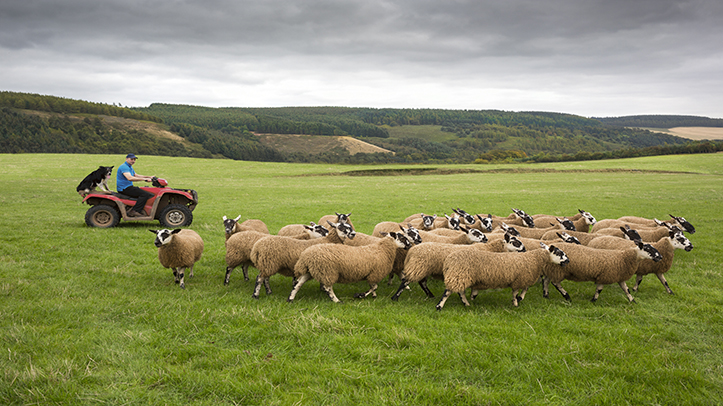Animal health advisors are being urged to recommend that sheep farmers administer a Knockout Drench in the mid to late grazing season as part of a strategic worm control plan to eliminate internal parasites that have survived routine drenching and help improve production and slow the development of wormer resistance.
A Knockout Drench containing the newer group four or five wormers, including the UK’s only dual active group five wormer, STARTECT Dual Active Sheep Drench, will effectively reduce worm burdens and support lambs finishing.
Additionally, it helps slow the development of resistance to the older groups of wormers and thereby extends their useful lifespan.
Recent data from Zoetis’ Parasite Watch, a UK-wide sheep worm surveillance scheme featuring data from a network of 25 sentinel farms, has revealed that in July, average worm egg counts drastically increased.
There were some farms with very high pooled strongyle worm counts of over 750 EPG in lambs. The rise coincides with warm, more humid weather conditions across many parts of the UK, accelerating the lifecycle of worm larvae on pastures.
Patricia van Veen, national veterinary manager with Zoetis, said: “After a dry June, July and August brought more favourable humid and warm weather conditions after some rainfall in most areas in the UK.
“These environmental conditions accelerate the lifecycle of worm eggs deposited in fields, leading to a rapid development into infectious larvae. Consequently, there can be a sudden increase in the number of ingested worm larvae, which negatively affects production. It is therefore crucial that farmers remain vigilant and closely monitor lambs for growth and cleanliness to quickly respond to parasite control.
“Faecal egg counts (FECs) are an important tool for managing worms in sheep and enable farmers to make more informed decisions to tailor strategic treatments based on the parasite risk. In the coming period, a Knockout Drench, such as STARTECT, is recommended to help manage wormer resistance and prolong the efficacy of all other wormer groups.”
Peter Baber, a sheep farmer from Devon, added: “Monitoring FECs is proving crucial for us during the drought conditions this year. A sudden rise in FEC alerted me and prompted a review of our next steps.
“In our case, this led to providing additional silage to the weaned ewes to improve their nutritional status and support their immunity. We also drenched the lambs at weaning with a group one-BZ wormer, followed by a drench check to assess the product’s effectiveness.
“For most lambs this was the first drench done this season, following low FEC counts earlier in May and June, with the April born lambs missing the Nematodirus spring rise. To manage wormer resistance, we consider all drench groups, perform regular drench checks, and incorporate group four or five wormers like STARTECT as a knockout drench in the late season.”
Mr Baber said this experience underscored how important it is, especially during drought, to closely monitor animal growth and FECs.
“Doing so enables you to respond quickly with the right interventions,” Mr Baber said.
SCOPS recommends using a Knockout Dose in late summer when there is a greater build-up of worms to reap the biggest benefits.
All remaining lambs should be drenched to maximise the chance of killing all resistant worms. Once drenched, lambs should be returned to the same fields and then moved after four or five days. This ensures that they will pick up a few untreated worms to take with them.
The group four and five wormers should also be used as a Quarantine Drench when introducing new stock.
For further information on Parasite Watch or to sign up to the Parasite Watch alert service, click here.
For further information on STARTECT contact your animal health advisor or click here.


